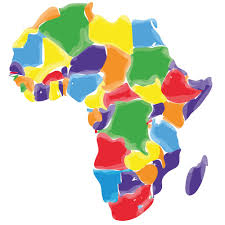Even so, Africans can do more to increase their share of the benefits. First, voters and activists can insist on transparency. It is heartening that South Africa is investigating the allegedly crooked deals struck under the previous president, Jacob Zuma, but alarming that even worse behaviour in the Democratic Republic of Congo has gone unprobed, and that the terms of loans to some dangerously indebted African governments are secret. To be sure that a public deal is good for ordinary folk as well as big men, voters have to know what is in it. Journalists, such as the Kenyans who exposed scandals over a railway project, have a big role to play.
即便如此,非洲人可以做得更多以獲益更多。首先,選民和積極分子可以堅持透明度。鼓舞人心的是,南非正在調查前總統雅各布·祖瑪執政期間達成的涉嫌欺詐的交易,但令人擔憂的是,剛果民主共和國更惡劣的行為尚未被調查,向一些負債嚴重的非洲國家政府提供貸款的條款是保密的。為了確保一項公共協議對普通人和大人物都有好處,選民們必須知道協議的內容。比如揭露鐵路項目丑聞的肯尼亞記者,將扮演重要角色。
Second, Africa’s leaders need to think more strategically. Africa may be nearly as populous as China, but it comprises 54 countries, not one. African governments could strike better deals if they showed more unity. No one expects a heterogeneous continent that includes both anarchic battle zones and prosperous democracies to be as integrated as Europe. The power imbalance between, say, China and Uganda is huge. It could be reduced somewhat with a free-trade area or if African regional blocs clubbed together. After all, the benefits of infrastructure projects spill across borders.
第二,非洲領導人需要進行更多的戰略思考。非洲的人口可能幾乎和中國一樣多,但它由54個國家組成,而不是一個整體。如果非洲各國政府表現得更團結,那么就能達成更好的協議。沒有人認為一個包括無政府主義戰區和繁榮的民主國家在內的多元化大陸能像歐洲那樣一體化。比如說,中國和烏干達之間的力量不平衡是巨大的。如果建立自由貿易區或者非洲區域集團聯合起來,這一比例可能會有所降低。畢竟,基礎設施項目的好處跨越國界。

Third, African leaders do not have to choose sides, as they did during the cold war. They can do business with Western democracies and also with China and Russia—and anyone else with something to offer. Because they have more choice now than ever before, Africans should be able to drive harder bargains. And outsiders should not see this as a zero-sum contest (as the Trump administration, when it pays attention to Africa, apparently does). If China builds a bridge in Ghana, an American car can drive over it. If a British firm invests in a mobile-data network in Kenya, a Kenyan entrepreneur can use it to set up a cross-border startup.
第三,非洲領導人不必像冷戰期間那樣選擇立場。他們可以與西方民主國家做生意,也可以與中國、俄羅斯以及其他任何國家做生意。由于非洲人現在比以往任何時候都有更多的選擇,他們應該能夠更努力地討價還價。外界不應將此視為一場零和競爭(特朗普政府在關注非洲時,顯然是這么看的)。如果中國在加納建一座橋,一輛美國汽車就能開過去。如果一家英國公司在肯尼亞投資一個移動數據網絡,那么肯尼亞的企業家可以用它來建立一個跨境創業公司。
Last, Africans should take what some of their new friends tell them with a pinch of salt. Democracy is a Western idea; development requires a firm hand. This message no doubt appeals to African strongmen, but it is bunk. A study by Takaaki Masaki of the World Bank and Nicolas van de Walle of Cornell University found that African countries grow faster if they are more democratic. The good news is that, as education improves and Africans move rapidly to the cities, they are growing more critical of their rulers, and less frightened to say so. In 1997, 70% of African ruling parties won more than 60% of the vote, partly by getting rural chiefs to cow villagers into backing them. By 2015 only 50% did. As politics grows more competitive, voters’ clout will grow. And they will be able to insist on a form of globalisation that works for Africans and foreigners alike.
最后,非洲人應該對一些新朋友告訴他們的事情有所保留。民主是西方的理念;發展需要堅定的決心。這一信息無疑對非洲鐵腕人物很有吸引力,但這是一派胡言。世界銀行的高崎雅明和康奈爾大學的尼古拉斯·范德沃勒進行的一項研究發現,如果非洲國家更加民主,經濟增長就會更快。好消息是,隨著教育水平的提高和非洲人迅速向城市遷移,他們對統治者的批評也越來越多,害怕說出批評言論的人越來越少。1997年,70%的非洲執政黨贏得了超過60%的選票,部分原因是通過讓農村領導人脅迫村民支持他們。到2015年,這一比例僅為50%。隨著政治競爭的加劇,選民的影響力將會增強。他們將能夠堅持一種對非洲人和外國人都有效的全球化形式。
譯文由可可原創,僅供學習交流使用,未經許可請勿轉載。












